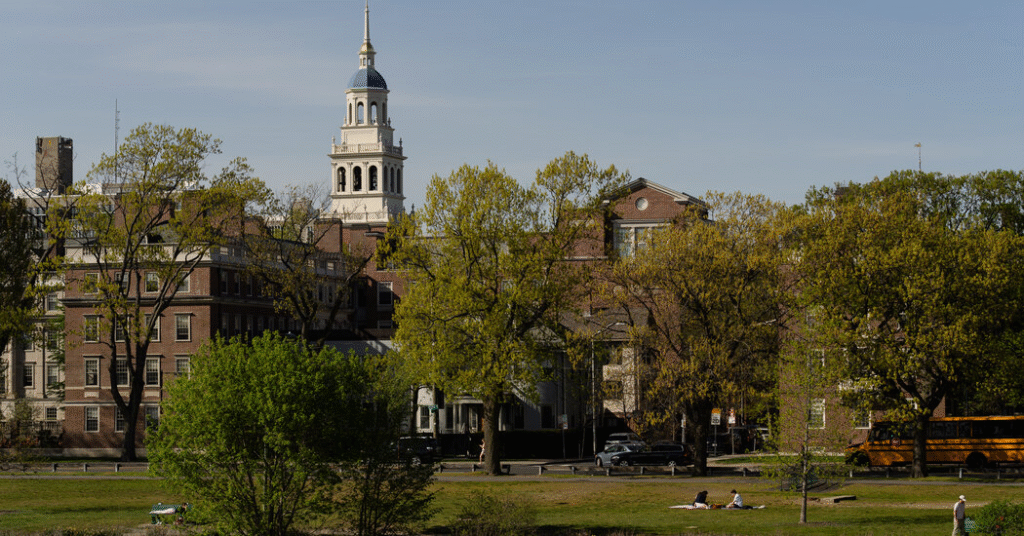Harvard University has stated that while it shares areas of “common ground” with the Trump administration, its efforts and values are being “undermined” by what it sees as excessive government overreach.
The university acknowledged that it aligns with the federal government on certain issues but expressed concern over actions and policies that it believes threaten institutional autonomy and academic freedom. Harvard emphasized that while collaboration is possible, it becomes strained when government intervention goes beyond reasonable oversight.
According to the university, this kind of overreach complicates its ability to operate effectively and uphold its core principles. Harvard called for a more balanced relationship that respects both the shared objectives and the independence of academic institutions.
Harvard University President Alan Garber said Monday that while the university and the Trump administration share “common ground” on key issues—such as combating antisemitism and other forms of bigotry on campus, as well as promoting a diversity of viewpoints—these shared goals have been obstructed by what he described as federal government overreach.
The latest development comes a week after U.S. Education Secretary Linda McMahon sent a sharply worded letter to Harvard President Alan Garber, declaring that the university is no longer eligible to receive federal grants due to what she described as “consistent violations of its own legal duties.”

In her letter, McMahon accused Harvard of undermining the integrity of the nation’s higher education system. She condemned the university’s use of affirmative action, its handling of campus protests, and alleged that Harvard has welcomed foreign students who “engage in violent behavior” and display “contempt for the United States.” She also claimed the institution has lost “any semblance of academic rigor” and pointed to broader concerns over its leadership and governance.
In response, Harvard—currently engaged in a lawsuit against the Trump administration—has pushed back. The university filed suit in April, arguing that threats to its federal funding violate the First Amendment and are “arbitrary and capricious.”
Gay stepped down after facing intense scrutiny over her testimony before Congress regarding antisemitism on campus, particularly in the aftermath of the Israel-Hamas conflict.
Garber also referenced Harvard’s task force on antisemitism, noting that its findings align with the White House’s stance that antisemitism is a pressing issue at the university. He further emphasized that Harvard has developed a comprehensive strategy to combat antisemitism and other forms of discrimination.
“I have also spoken out about the need for greater intellectual diversity on campus and have launched initiatives to make Harvard a more pluralistic and welcoming place,” Garber added.
However, the president did not fully yield to the administration’s criticisms. He firmly rejected claims that the university is overly partisan, standing his ground against such assertions.
“It is neither Republican nor Democratic. It is not an extension of any political party or movement, and it never will be,” Garber asserted.
He also defended international students, describing them as “vital members” of the Harvard community, noting that they are held to the same performance and conduct standards as their U.S. counterparts.
“They come to this country and to Harvard to learn and excel at the highest levels, just as our U.S. students do.
In closing, Garber highlighted the “long and productive relationship” that research universities like Harvard have had with the federal government, a partnership that has spurred economic growth, innovation, and life-saving discoveries benefiting both the nation and humanity.
